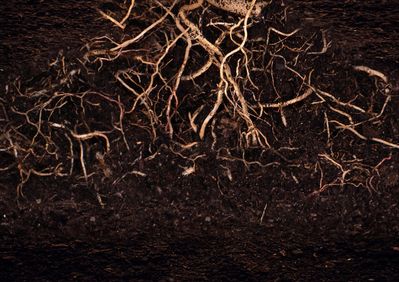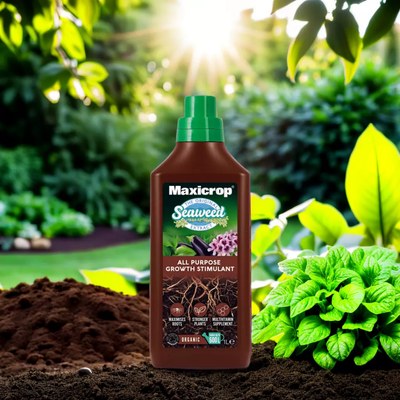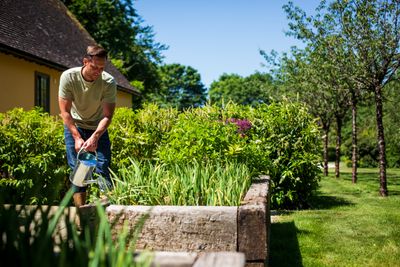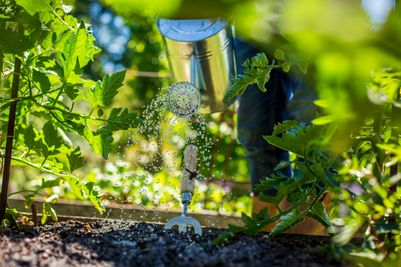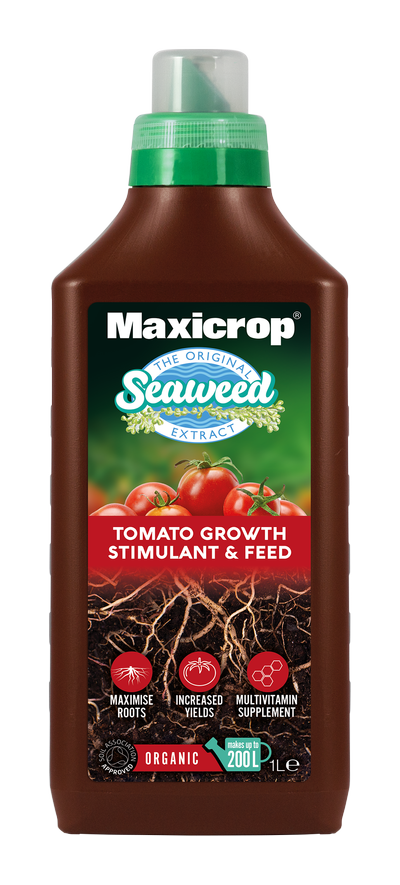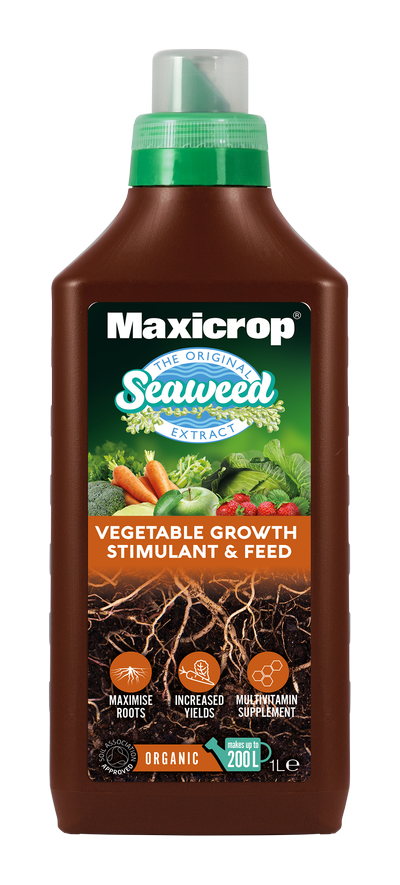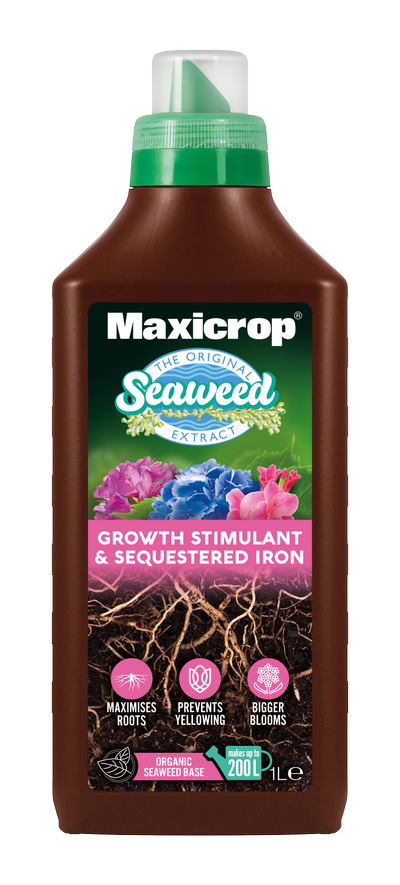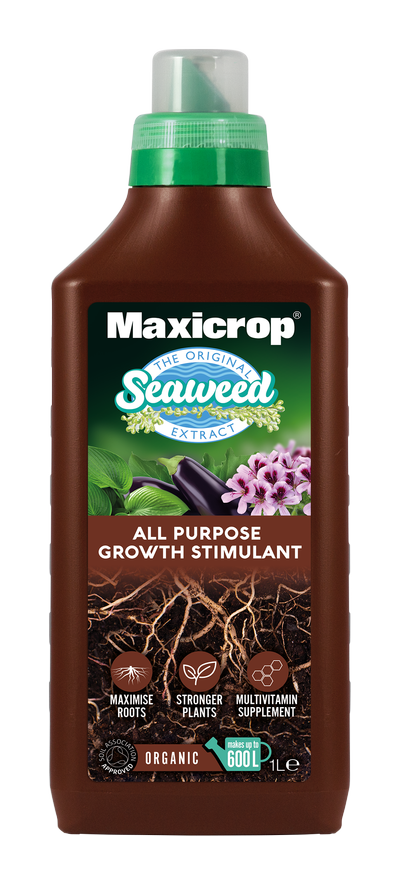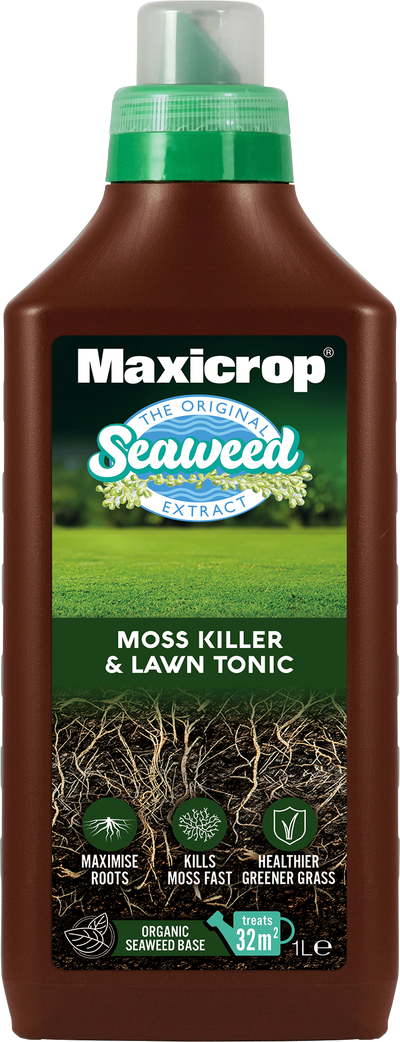Seaweed: the secret to a successful garden
Published:
Read Time: 2 mins
Angharad James, product manager at Maxicrop, discusses the benefits of seaweed for plants:
“Seaweed has been a gardener’s secret weapon for centuries, but what exactly makes it so beneficial for plants? Backed by science, seaweed offers all kinds of natural advantages that can help you grow healthier, more resilient crops in your garden. Its unique composition, rich in bioactive compounds and essential minerals, delivers measurable benefits to both plants and soil.
Natural plant growth hormones
Seaweed contains plant growth hormones such as auxins, cytokinins, and gibberellins. These compounds regulate key plant processes, including cell division, elongation, and differentiation. Cytokinins, for example, delay cell aging, which helps plants maintain their green, photosynthesizing leaves for longer. Auxins promote root growth, ensuring better anchorage and nutrient uptake. These natural hormones provide a sustainable way to stimulate healthy and vigorous plant development.
Boosts soil microbial activity
Soil health is the foundation of a good garden, and seaweed supports this by promoting beneficial microbial activity. The carbohydrates and polysaccharides in seaweed, such as alginates and laminarins, serve as food sources for soil microorganisms. These microbes, including bacteria and fungi, are the engine of healthy soil ecosystems and help break down organic matter, release locked-up nutrients, and improve soil structure, creating an ideal growing environment.
Enhances stress tolerance
Seaweed contains compounds like betaines and antioxidants, which are known to enhance a plant’s ability to withstand environmental stresses such as drought, heat, and frost. Betaines act as osmoprotectants, which are small, organic molecules that help organisms maintain cellular hydration under water stress. Meanwhile, antioxidants combat oxidative damage caused by environmental extremes, keeping plants healthier for longer.
A source of trace minerals
Seaweed is naturally rich in trace minerals and secondary feed elements like copper, magnesium, iron, manganese, and zinc. While these elements are only required in small quantities, their impact on plant health is profound. For example, iron is involved in the production of chlorophyll and chloroplast, which acts as batteries for cells, while magnesium plays a critical role in chlorophyll production, directly influencing photosynthesis and energy creation.
To ensure your plants get the appropriate level of nitrogen, phosphorus and potassium (NPK) needed to thrive, we recommend using a biostimulant with a complete fertiliser. Maxicrop’s wider range of feeds and growth stimulants makes it easy to ensure plants have everything they need for strong, healthy growth!”
***
For more expert gardening advice and information about Maxicrop, visit www.seezon.co.uk
Ends
Editors notes
Maxicrop® has been a trusted name in gardening for over 80 years, known and loved for its premium organic seaweed-based products that support plant growth and resilience.
Sustainably sourced from the pristine waters off the Norwegian coast, Maxicrop’s seaweed extract is rich in nutrients and antioxidants, offering a natural bio-stimulant to develop strong plant cells and boost root growth, while building resistance to disease, drought and cold.
Its hero product, the popular All Purpose Growth Stimulant, is a pure bio-stimulant with an enriched formula designed to enhance root development, nutrient uptake, and stress tolerance in plants.
The wider range features products that carefully combine this high-quality, highly concentrated seaweed base with Nitrogen, Phosphorus, and Potassium to provide complete care for a variety of garden needs, including Vegetable Growth Stimulant and Feed, Tomato Growth Stimulant and Feed, Growth Stimulant and Sequestered Iron, and Moss Killer and Lawn Tonic.
Certified organic by the Soil Association, Maxicrop provides eco-conscious gardeners with effective, sustainable solutions for healthy, thriving plants.


